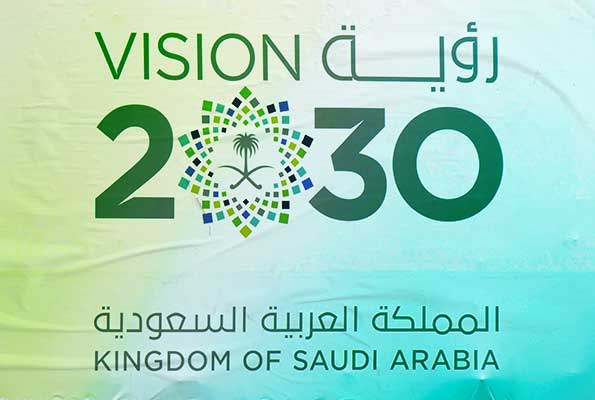According to a senior official at Dubai-based Moody’s rating agency, Saudi Arabia’s expansive ‘Vision 2030’ effort to diversify the nation’s economy away from oil will have numerous advantages for the global Islamic finance industry.
Nitish Bhojnagarwala, senior vice president at Moody’s, stated that the Kingdom’s initiative was “positive” for the Islamic finance sector in a phone conversation with Al-Monitor.
The largest Islamic banking market is found in Saudi Arabia, where assets total more than 3.1 trillion riyals ($830 billion). According to Nitish Bhojnagarwala, its entire banking system’s assets are almost 83% Sharia-compliant.
“As Saudi Arabia’s economic growth accelerates, it will benefit the Islamic finance sector more broadly. The Islamic banking industry and Islamic banks should both profit from this, and all of the initiatives should also help sukuk issuance activities,” he said.
By investing in green initiatives, new sustainable towns, technology, health care, and tourism, Crown Prince Mohammed bin Salman hopes to reduce the Kingdom’s reliance on fossil fuels by the year 2030.
However, there have been indications of both success and roadblocks since the agenda’s debut in 2016. For instance, Saudi Arabia established a goal for non-oil earnings of 1 trillion riyals (USD 270 billion) by 2030. According to the most recent data from 2021, progress has fallen short of the goal of 403 billion riyals (USD 107 billion).
The two countries that issue the most sukuk are Saudi Arabia and Malaysia, although recent sukuk transactions have decreased, according to Moody’s latest market outlook.
The rating agency anticipates a continued reduction in sukuk issuance as a result of reduced volumes from significant sovereign issuers, primarily as a result of the improved economic situation within the Gulf Cooperation Council and Southeast Asia.
A rise in energy prices, the entry of more women into the workforce, and the GCC’s economic diversification away from hydrocarbons are all contributing factors to this transition.
In 2023, Moody’s predicts that gross sukuk issuance will be between USD 150 million and USD 160 million, down from USD 178 billion in 2018. The private sector, however, saw higher volumes, driven by first-time issuers, refinancing, and delayed issuances.
Due to a lack of activity from Saudi Arabia, Indonesia, and Turkey, sukuk issuance volumes decreased 28% to USD 66 billion for the first half of 2023.
The rise of Islamic finance is anticipated to be fueled in the upcoming years by green economic agendas and new issuers, suggesting that the current slowdown will pass quickly.
According to Nitish Bhojnagarwala, the COP28 UN climate change conference, which will be held in the United Arab Emirates at the end of November 2023, will probably encourage the Middle East to issue green sukuk.
“I think with COP28 in the region and a lot of emphasis on green sukuk in the region as well, we expect this year probably to be a bit higher, and more generally we see long-term growth potential in the green sukuk market,” he continued further.
Although the growth outlook for green agreements was positive, he pointed out that the base was still quite tiny.
In the first half of 2023, green sukuk issuances totalled about USD 6 billion, up from USD 4 billion in the same period in 2022. Issuances totaled USD 7 billion for the entire 2022, which means that 2023 is on pace to surpass it and the market is expected to expand.
Moody’s executive stated that the pipeline for green Islamic agreements appeared strong as a result of the region’s governments and the business sector embracing sustainability agendas more and more as key components of investor strategy.
“We have both demand-side and supply-side emphasis on green sukuk, so it should lead to acceleration in the coming quarters and years,” the executive concluded.



